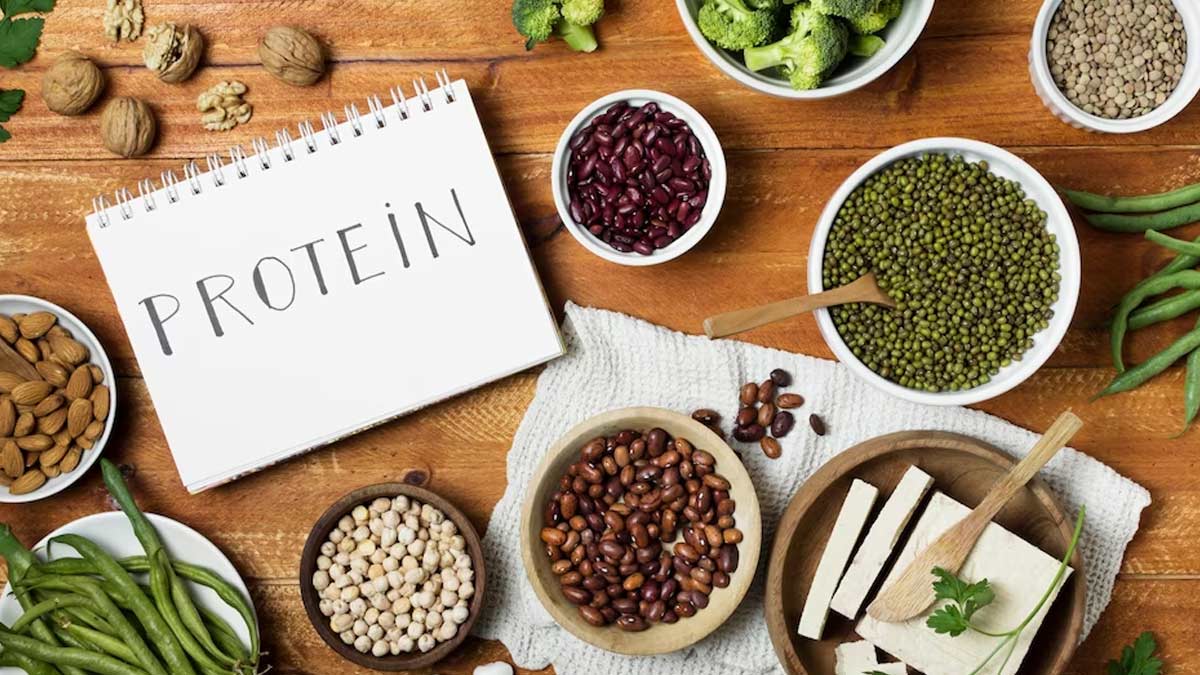
Protein is a vital nutrient essential for various bodily functions, including muscle repair, immune function, and hormone production. While it's commonly associated with animal products, achieving adequate protein intake through a balanced diet is entirely achievable for vegetarians and vegans as well. Understanding how to combine foods effectively can significantly enhance your protein intake, ensuring you receive all the essential amino acids necessary for optimal health.
Table of Content:-
We spoke to our expert Zoobiya Islam, Assistant professor of Nutrition and Dietetics Department - Sharda University to share a comprehensive guide on how to master the art of food combination to boost your protein intake. Here is what you should know.
Understanding Complete and Incomplete Proteins
Complete Proteins: These contain all nine essential amino acids in sufficient quantities. Animal-based foods such as meat, poultry, fish, eggs, and dairy are considered complete proteins.
Incomplete Proteins: Lacking one or more essential amino acids, most plant-based foods fall into this category, including legumes, grains, nuts, and seeds.

Also Read: Why Do We Need Strong Legs? Doctor Explains
1. Combine Complementary Proteins
Pair incomplete proteins to create a complete amino acid profile. Examples include:
- Legumes (beans, lentils, chickpeas) with grains (rice, wheat, oats)
- Legumes with nuts or seeds
- Legumes with dairy products
- Grains with dairy products
2. Include a Variety of Protein Sources
- Diversify your protein intake by incorporating a wide range of protein-rich foods into your diet. This ensures you receive all essential amino acids.
- Incorporate various plant-based proteins such as tofu, tempeh, quinoa, chia seeds, hemp seeds, and spirulina alongside animal-based proteins.

Also Read: Understanding Digital Dementia: Debunking Myths and Exploring Reality
3. Snack Smartly
- Opt for protein-rich snacks to keep your energy levels stable throughout the day and prevent overeating during meals.
- Examples of protein-rich snacks include Greek yoghurt with nuts, hummus with whole-grain crackers, or a smoothie with protein powder and spinach.
4. Consider Protein Supplements
- Protein supplements like whey, pea, soy, or rice protein powder can be useful for individuals struggling to meet their protein needs through whole foods alone.
- However, whole foods should always remain the primary source of nutrients whenever possible.
5. Consult a Registered Dietitian
For personalised advice tailored to your specific dietary needs and concerns, consult a registered dietitian. They can help you create a balanced meal plan that meets your individual requirements.
A Final Word
By strategically combining different protein sources, you can optimise your protein intake and support overall health and performance. Whether you're a meat-eater, vegetarian, or vegan, there are plenty of delicious and nutritious options available to ensure you meet your protein needs. Embrace variety, experiment with new recipes, and prioritise whole, nutrient-dense foods to fuel your body and thrive. Remember, achieving a balanced diet is not only about meeting your protein requirements but also about nourishing your body with a wide array of essential nutrients for optimal health and well-being.
Also watch this video
How we keep this article up to date:
We work with experts and keep a close eye on the latest in health and wellness. Whenever there is a new research or helpful information, we update our articles with accurate and useful advice.
Current Version